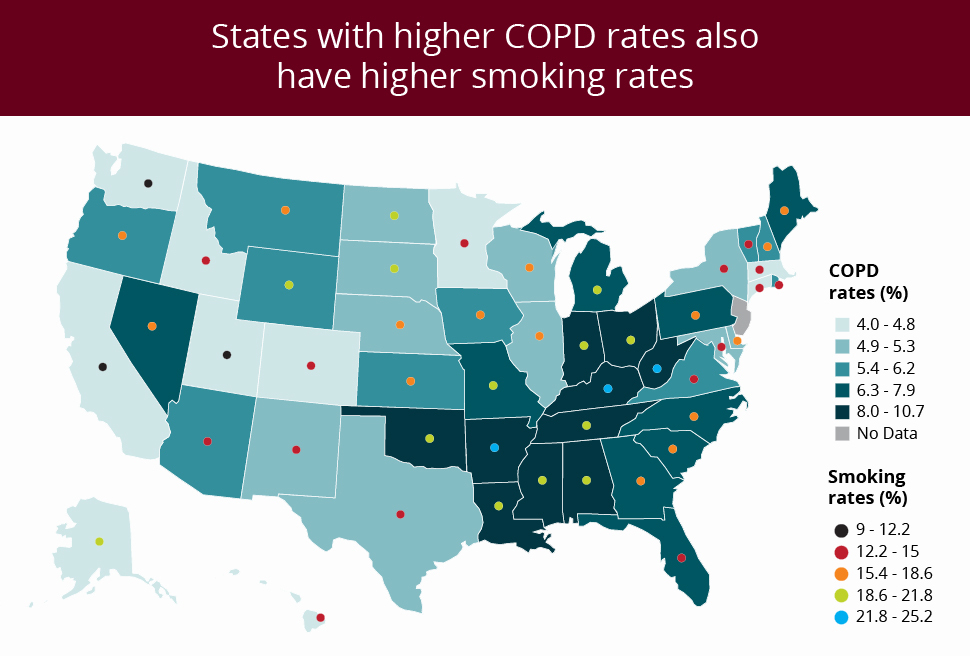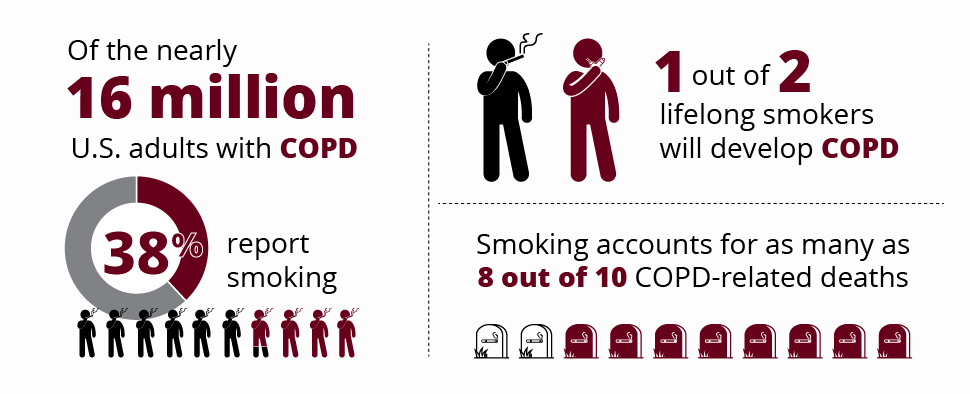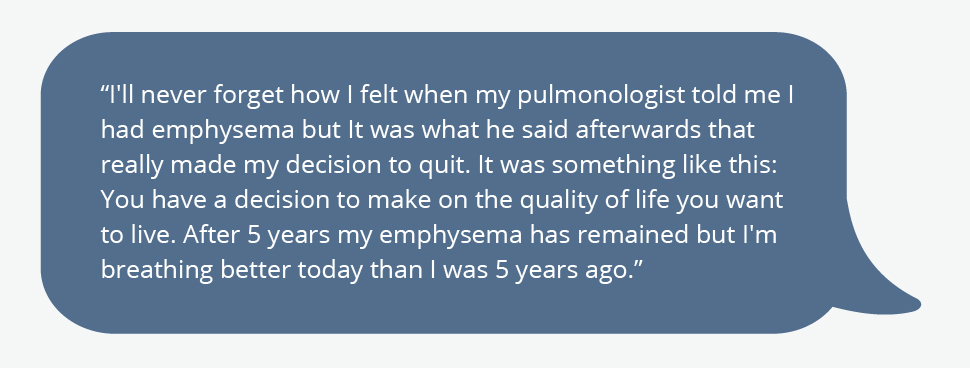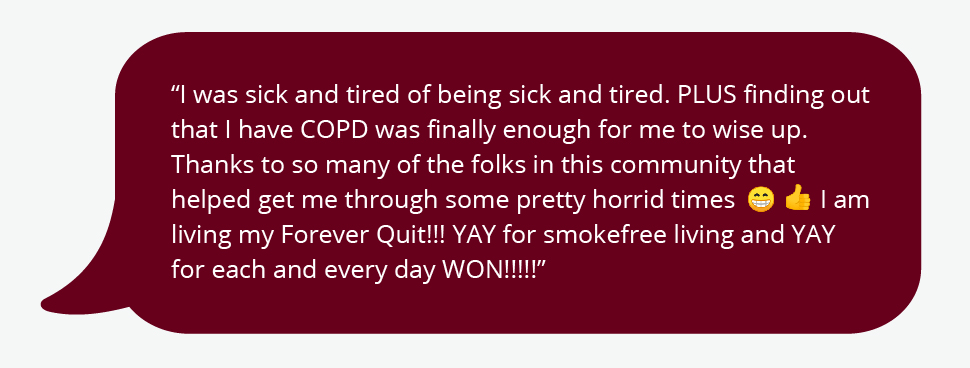Chronic obstructive pulmonary disease (COPD) and smoking are like lightning and thunder; they often go together.
COPD refers to a group of diseases, including emphysema and chronic bronchitis. With COPD, less air flows through the airways and this can cause symptoms such as:
- Shortness of breath
- Wheezing or nagging cough
- Tightness or pain in the chest
Here are a few common questions about the connection between COPD and smoking, along with next steps you, as an employer, can take to help employees break that chain.
Is smoking a major risk factor for COPD?
The short answer: yes. COPD is typically caused by long-term exposure to irritants in the lungs, and the biggest culprit is smoking.
Inhaling harmful particles or gases, such as those found in tobacco smoke, irritate lung tissue. When done consistently, the lungs don’t have an opportunity to heal. This creates scarring that causes the lungs to lose their ability to expand and contract, which prevents oxygen from going into the bloodstream.
It’s not surprising that many states with higher COPD rates also have higher smoking rates.
Do all smokers get COPD?
Not all smokers get COPD.
According to the Centers for Disease Control, of the nearly 16 million U.S. adults with COPD, 38% report smoking. However, one out of two lifelong smokers will develop COPD. And smoking accounts for as many as 8 out of 10 COPD-related deaths.
How does vaping affect COPD?
Evidence about smoking and COPD is clear, but because vaping hasn’t been around as long, the data on that connection isn’t as strong. But that doesn’t mean people are safe from COPD if they vape. Here’s what is known:
- Vaping harms lung and heart health and weakens the immune system.
- The vapor from e-cigarettes decreases the ability of the lungs to respond to infection.
- COPD patients who vape have worse lung health than those who do not vape.
The fact is that lungs are at risk with any kind of inhaled chemicals, and that includes vaping.
What COPD and smoking statistics do employers need to know?
You likely have heard the stat that a smoker typically costs an employer around $6,000 more than a non-smoking employee. Likewise, an employee with COPD is equally costly, with the direct cost of COPD estimated at $6,246 per year.
COPD has also been associated with lost productivity of an average of 5 more days per year of absence from work per person.
For example, because COPD affects oxygen levels, employees with COPD are much more likely to feel fatigued and short of breath. The lack of oxygen to muscles can also cause issues with standing, lifting, and reaching. Whether these employees are at a desk in an office or have a more physical job, these limitations can become serious.
How does smoking cessation positively impact COPD?
No matter how long smokers have smoked, or how bad their COPD is, they can benefit from quitting.
Quitting is the best way to prevent COPD, and for those who have COPD, quitting tobacco is the only proven treatment. Oxygen and medications can lessen the severity of symptoms of COPD, but no medication will slow the progression of the disease.
Recent posts from people with COPD in our online EX Community are great examples of how quitting smoking can make an incredible difference in a person’s quality of life.
“I’ll never forget how I felt when my pulmonologist told me I had emphysema but It was what he said afterwards that really made my decision to quit. It was something like this: You have a decision to make on the quality of life you want to live. After 5 years my emphysema has remained but I’m breathing better today than I was 5 years ago.”
“I was sick and tired of being sick and tired. PLUS finding out that I have COPD was finally enough for me to wise up. Thanks to so many of the folks in this community that helped get me through some pretty horrid times. I am living my Forever Quit!!! YAY for smokefree living and YAY for each and every day WON!!!!!”
How employers can affect COPD and smoking in the workplace
Even with the known health advantages, many people with COPD find it difficult to quit. That’s why it’s important to find a program that has tobacco treatment experts who are experienced with COPD and understand how the condition and smoking are linked.
The EX Program offers a compassionate, evidence-based approach that provides ongoing support to quit and stay quit for people with COPD. We also have an active online EX Community of current and former tobacco users, including many who have COPD, who focus on lifting each other up to overcome addiction.
To learn more about how the EX Program supports individuals with chronic conditions, please visit our program page. Or contact us today to schedule a demo.








